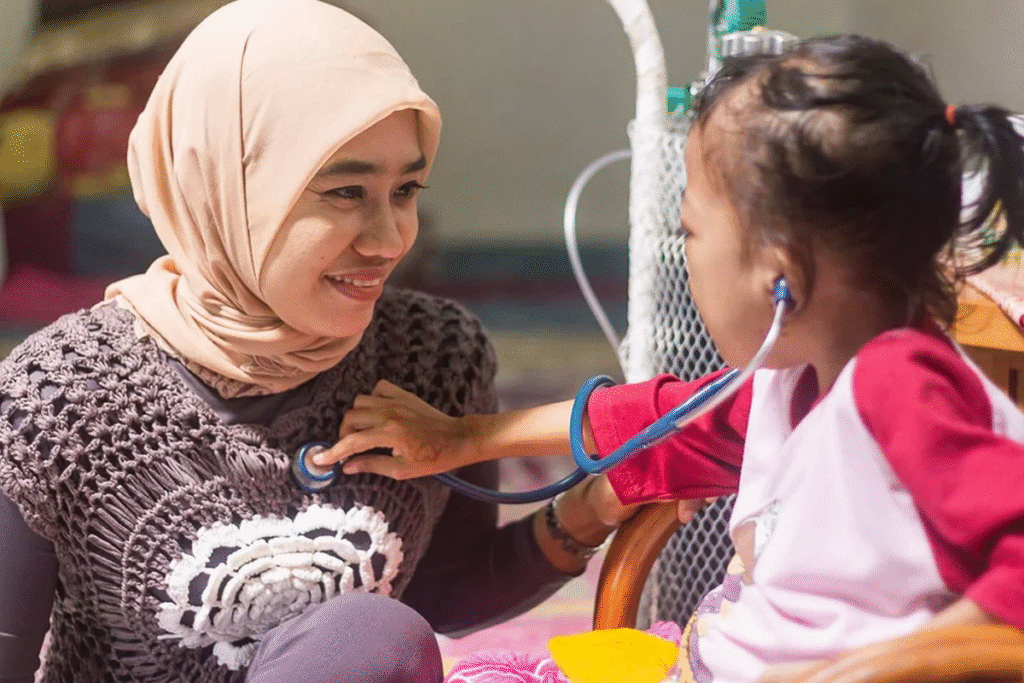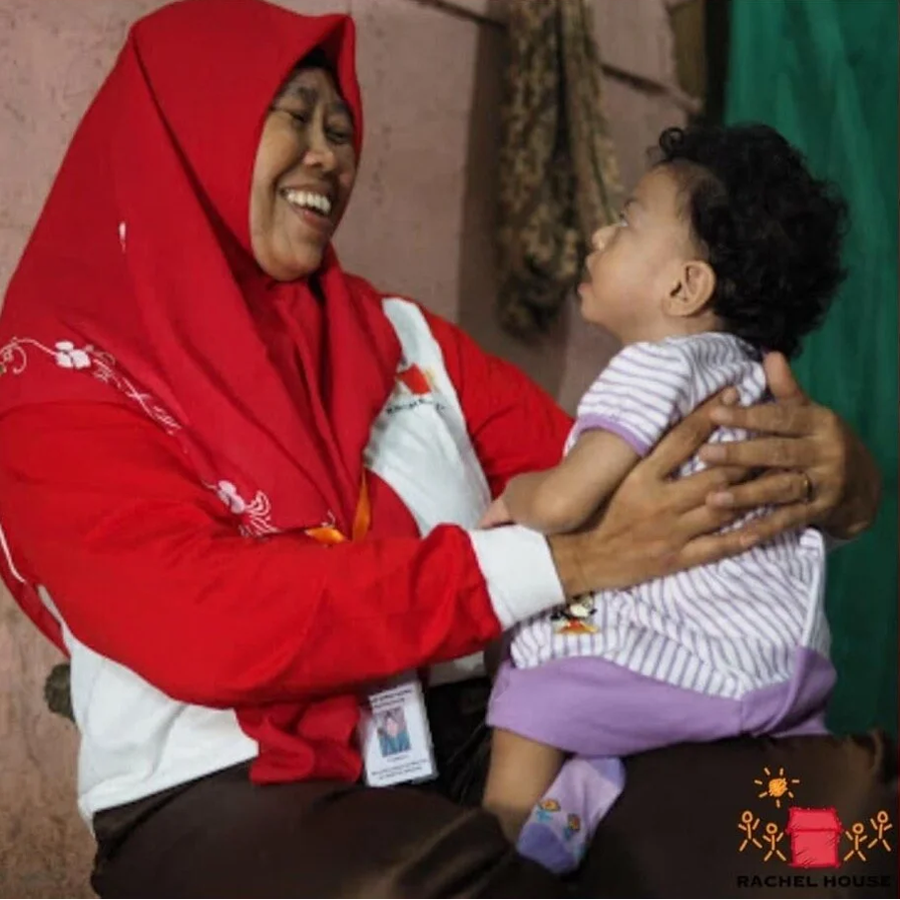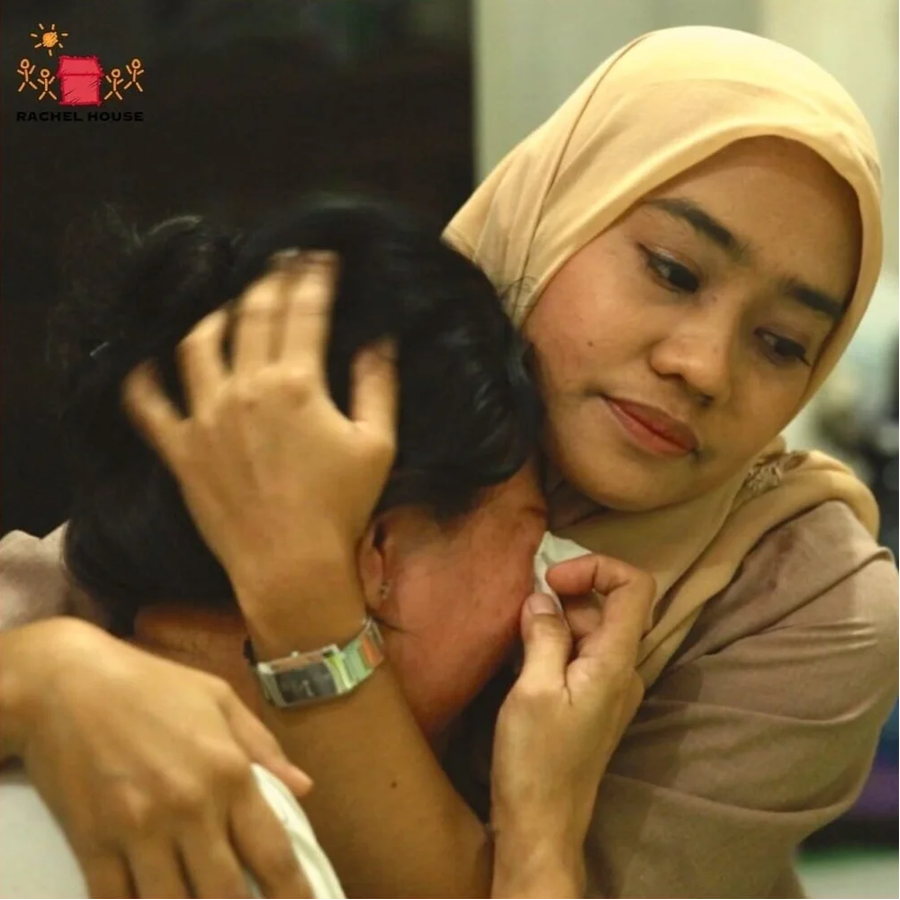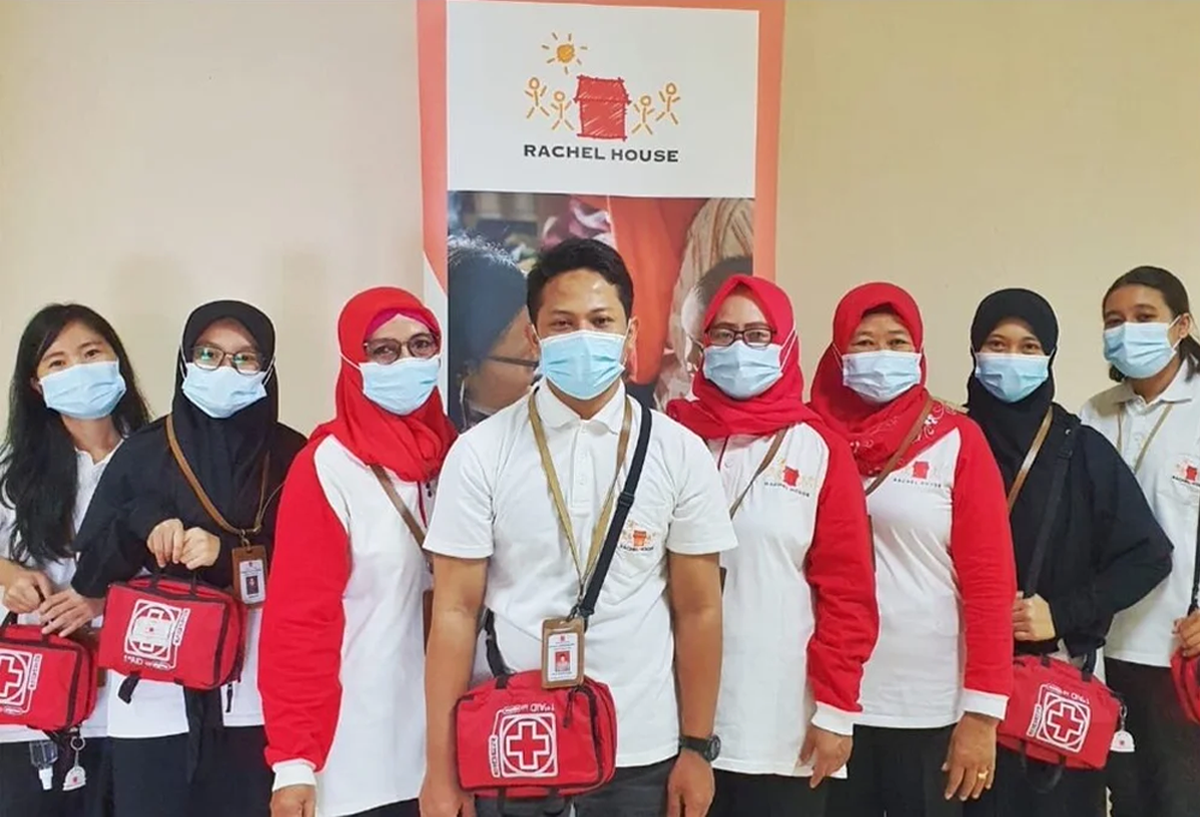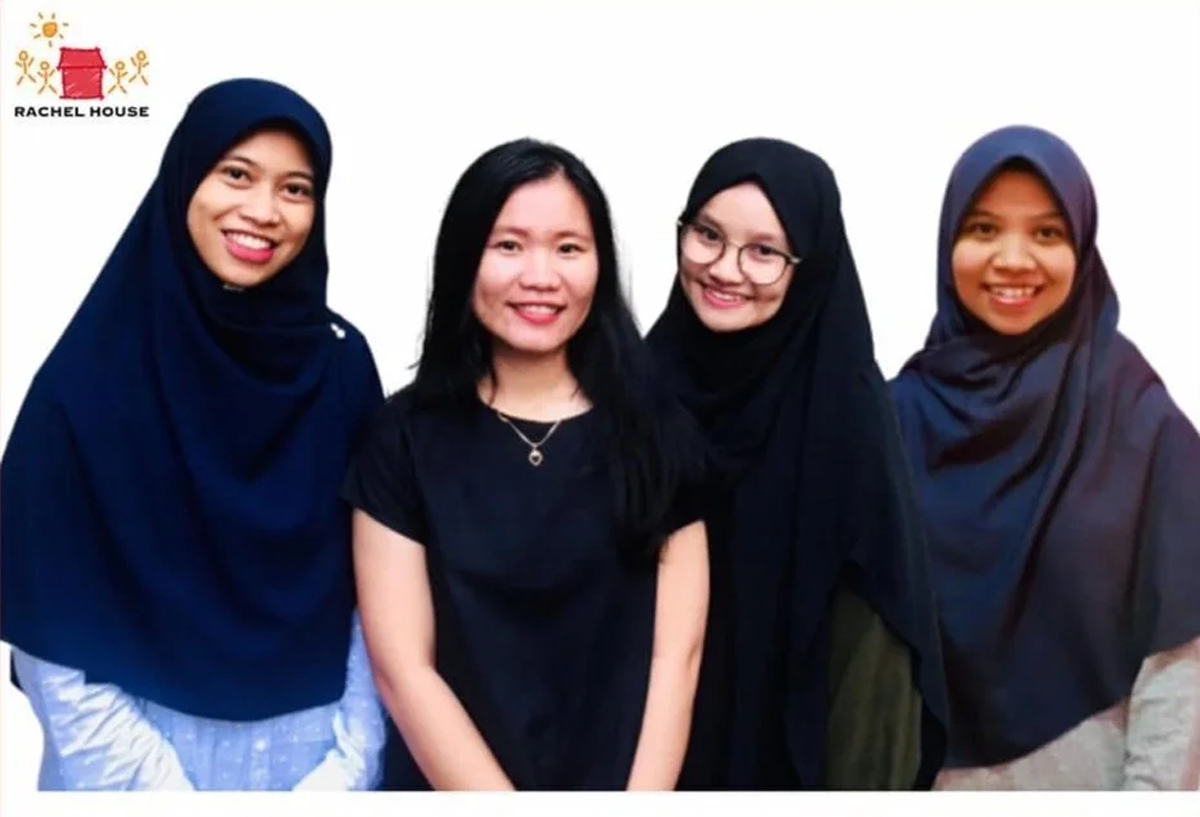No child should ever have to live or die in pain. Dealing with a dying person is a heartbreaking affair for caregivers.
Rachel House is lending a hand and bringing new light to the support of terminally ill children in Indonesia.
It takes a village to raise a child. It definitely takes a community to care for a child living with life-threatening illnesses, according to Lynna Chandra, founder and trustee of Rachel House.
There is no greater suffering for a parent than to witness the slow death of his/her child. Rachel House journeys alongside the children and their families to provide a little comfort and help ease their pain, whether it’s physical, emotional, social, economic or spiritual.
Established in 2006, Rachel House is a non-profit entity that has pioneered free palliative care for children in Indonesia, the first-of-its-kind in the country. The outcome has been encouraging, extending far and beyond into the communities.
As of 30 June 2021, Rachel House has cared for 921 children, supported 2,763 family members, educated 6,525 healthcare professionals and trained 2,667 community health workers. The stories have been shared, touching hearts of many around the world.
In June 2021, 5-year-old Aulia, living with an immunity-compromised illness that can severely affect her growth and development, left home. She was living with the family comprising her mother (who suffered from the same serious illness), an older sister, a mentally ill aunt, and an absentee father – all supported by her grandmother, the family’s sole breadwinner, by doing laundry service for various houses located in a densely populated area in Jakarta. In addition to her illness, Aulia was subjected to such pressure in the household. It was inevitable that Rachel House stepped in and brought Aulia to a shelter where she is able to get proper care. When her mother passed away last year, Aulia’s nurse realised that although this child is now living in a better environment with proper medicine and nutrition, she still has a long way to go. Aulia’s nurse constantly worries and questions how Aulia is coping with all the changes and challenges in her life, which barely started.
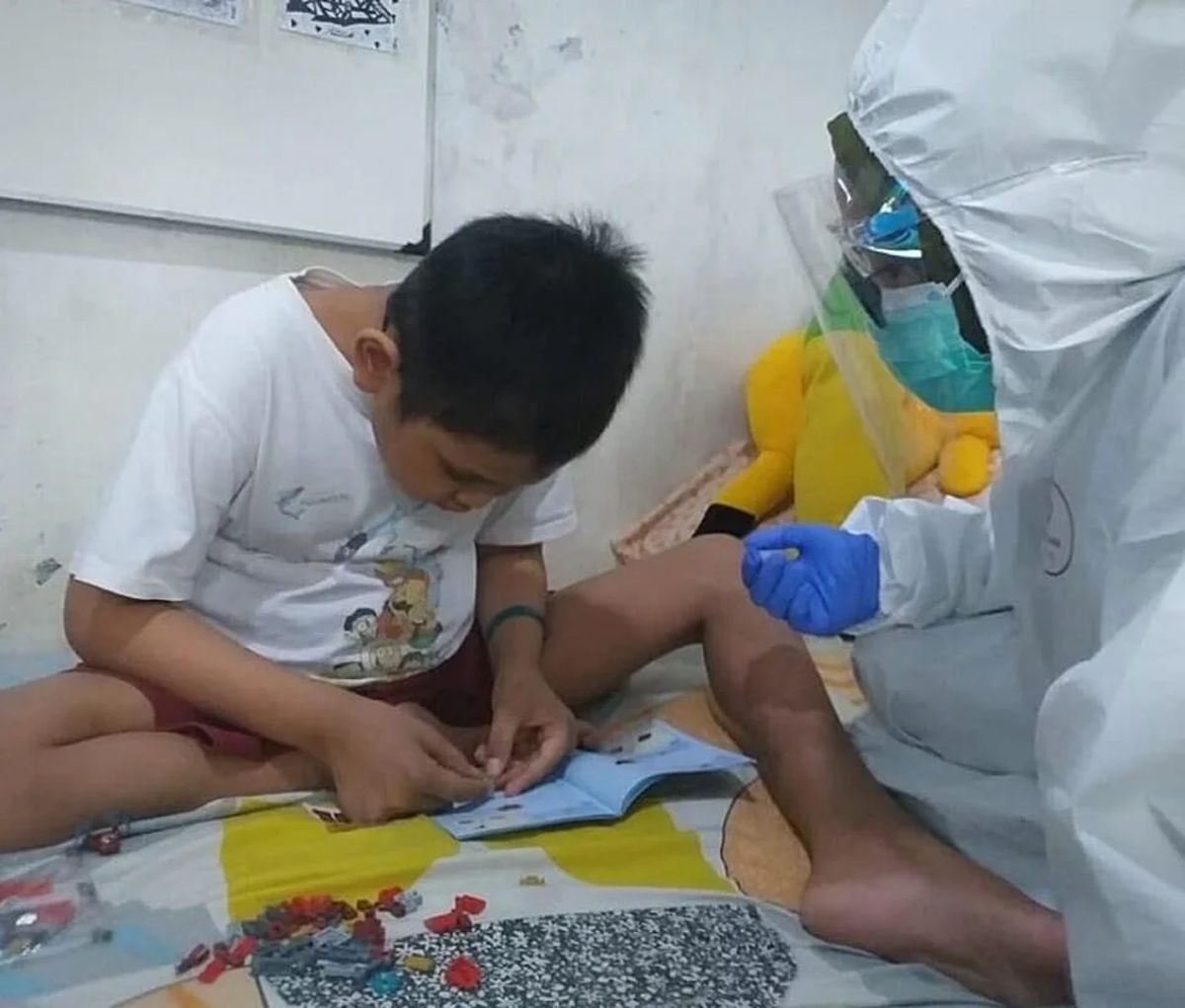
Little boy Hadi was diagnosed with Retinoblastoma when he was three years old. One day his eye turned into a “cat’s eye” becoming alarmingly red and caused non-stop vomiting. His family neither had the knowledge nor financial means to properly care for him. Hadi’s mom had to work day and night to pay for his medical expenses and to support a one-bedroom house they shared with grandparents and two uncles. For the past two years Hadi has undergone chemotherapy, and supported by a nurse from Rachel House. Nurse Ribka has been visiting him regularly, bringing a little treat of red grapes for Hadi and his family. Fruits are a luxury, and they are so grateful for Nurse Ribka’s visits and kindness that it brings tears to their eyes when she comes by. Little do they realise Nurse Ribka is just as happy to visit the little boy.
Rachel House has countless similar stories of children and families needing desperate care and attention. Guided with a singular vision and commitment “to add life to their remaining days” the nurses and healthcare-givers make time for them.
Rachel House’s palliative care-trained nurses have become the “model” nurses invited to share their knowledge at major hospitals and nursing faculties, and participate in difficult case discussions at some of the largest national referral hospitals in Indonesia.
It all began with a dream to build a safe haven in Indonesia that was purpose built to care for children with life-limiting conditions. Many rallied to support the cause. The pilot was a three-bed in-patient children’s hospice, which marked the beginnings of Rachel House.
During the initial months of its operations, children referred to Rachel House begged to go home upon their discharge from the hospital. After prolonged periods of chemotherapy and invasive treatments, the little ones pleaded to be with their family and friends. The children’s pleas determined the future path for Rachel House. The hospice nurses donned helmets and jackets, travelled through traffic-jammed Jakarta on bikes, in order to provide home-based palliative care service.
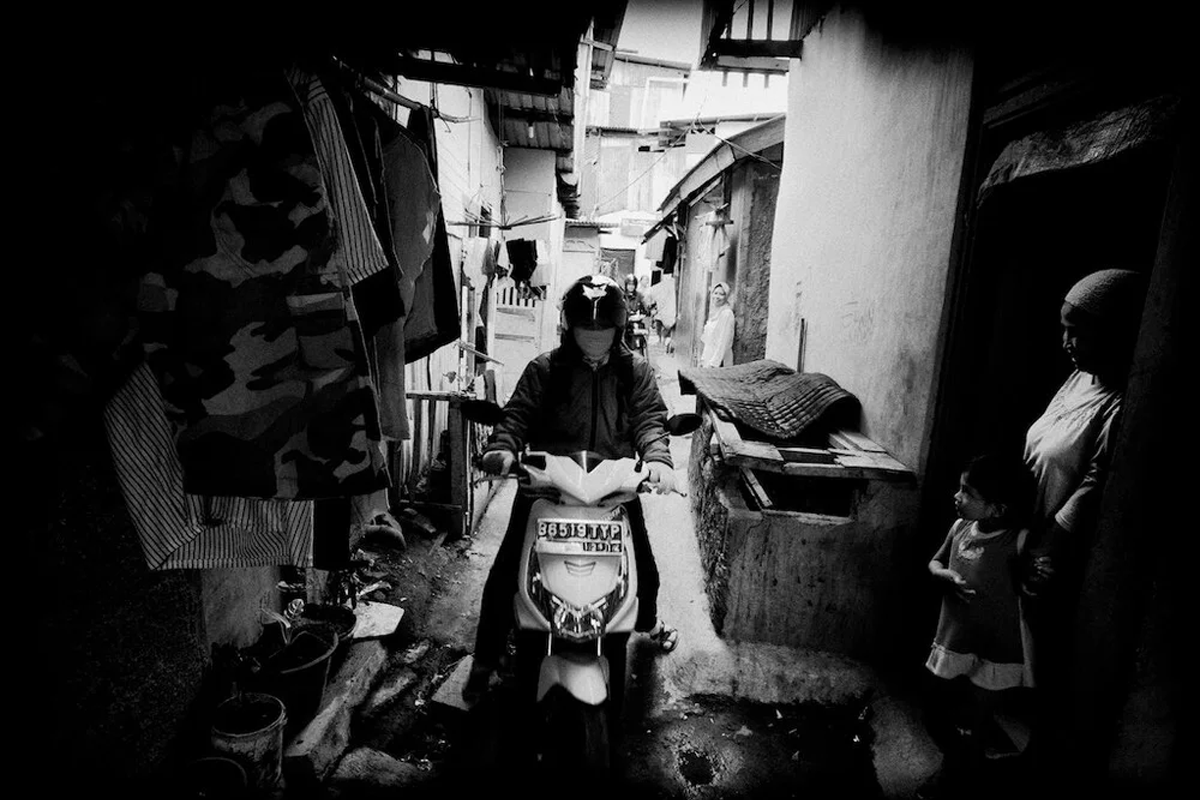
Understandably, most of these children prefer to die in the familiarity of their homes, even if home is in a slum, but their primary caregivers need to know how to make their last days as comfortable as possible. Meanwhile, to give their best to the terminally ill children in their hands, caregivers often need training and support too.
To make palliative care sustainable, Rachel House is committed to building a palliative care ecosystem to help ensure that pain and symptom management is available and accessible to all, from primary to tertiary healthcare settings, to prevent and relieve suffering.
It is actively working to disseminate palliative care skills and knowledge to medical professionals at public hospitals and puskesmas (primary health clinics) while reinforcing the community’s capacity by empowering community volunteers in basic palliative care knowledge.
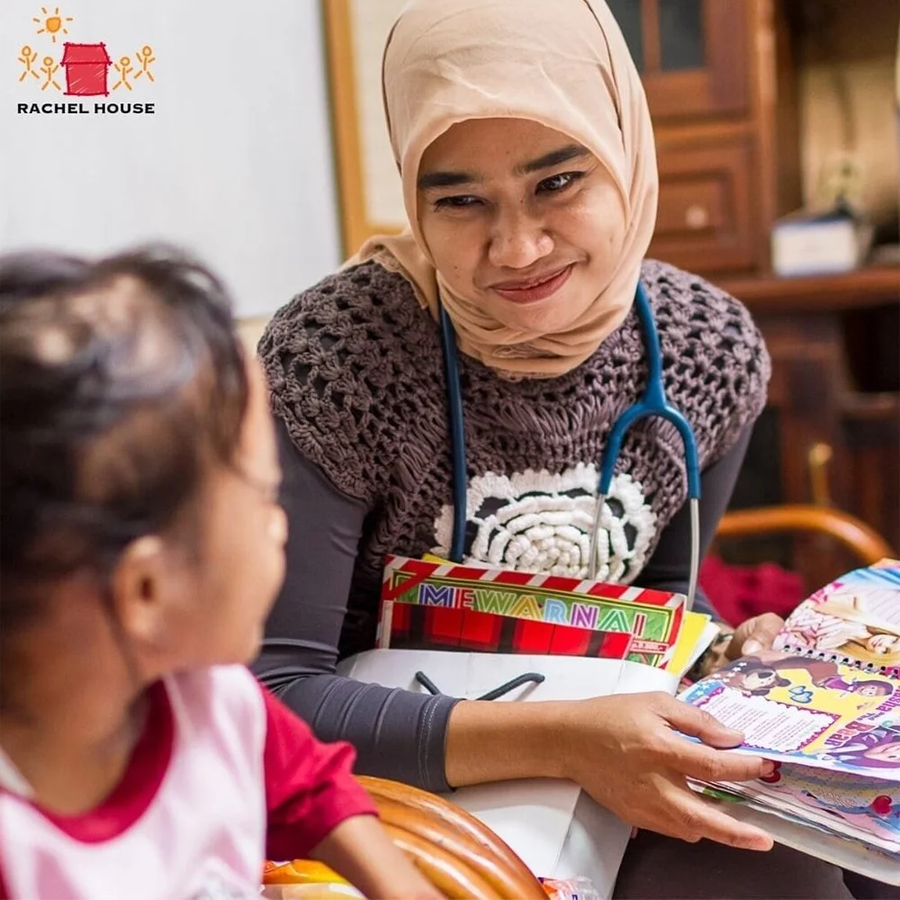
Lynna was born in Indonesia and moved with her siblings to Singapore during secondary school. She then went to Australia for university. Her move to Australia changed her life when she lived with her host family, a loving unit with a role model of a mother.
With fondness she reminisces about her host mother: “I would come home from school to the smell of cookies being baked and a cup of coffee ready for our precious moments together, before she had to get dinner ready. Although many times I would find someone there in my seat before I arrived, looking for the same comfort and soothing balm. I definitely was not a happy camper then!”
Describing her host mother as the unofficial guidance counsellor of the community, she was “a vital piece of the puzzle” in Lynna’s life that led her to where she is today.
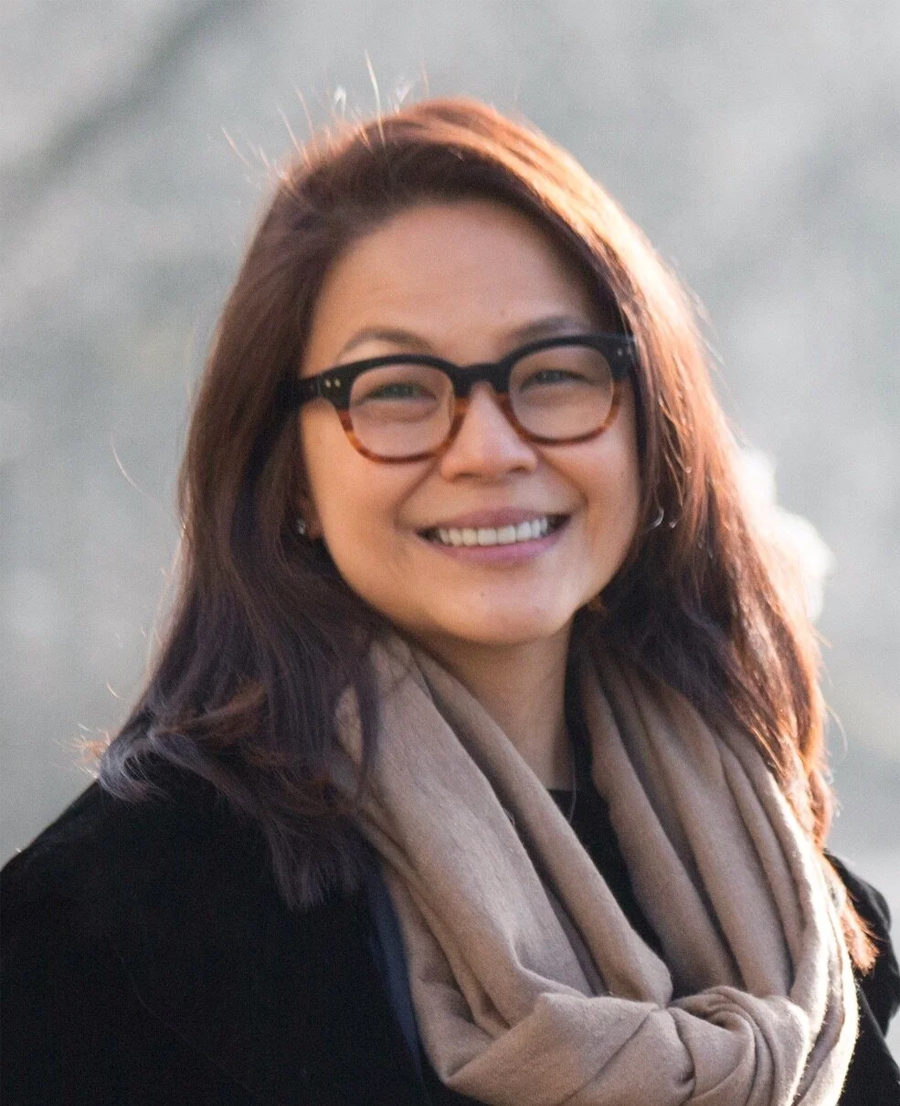
When a close friend passed away from cancer 17 years ago, it had a profound effect on Lynna. Having witnessed children in pain in her travels across parts of Asia, particularly in Indonesia, and after a career in investment banking, her first thoughts on tackling the problem was to build a hospice for these children – setting up Rachel House.
“I thought that the structure of a building would be enough. Little did I know it was just scratching the surface. Pain management and palliative care did not exist in Indonesia then. I needed to change people’s mindset about pain. However, more than anything else, I did not realise I needed to change myself first,” she told me. With that mindset, she challenged the landscape of the medical industry in Indonesia.
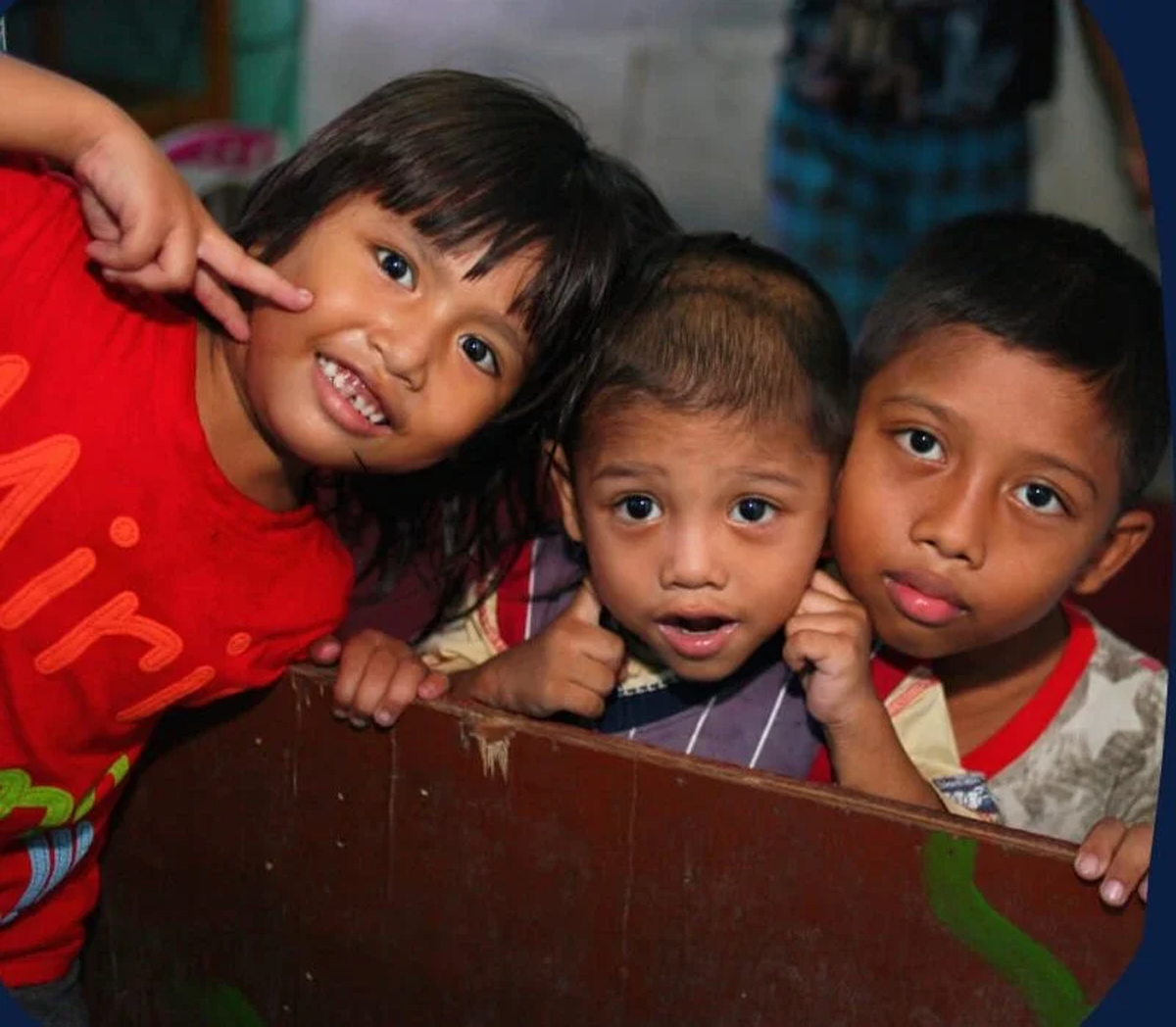
Despite the lack of medical background or training, Lynna was able to pioneer the first national system of home-based palliative care service for children living with terminal cancer and HIV/AIDS. There are approximately 11,000 new cases of childhood cancer per year, predominantly in Jakarta where approximately 650 new cases of pediatric cancers are diagnosed mostly to families who cannot afford to pay for medical treatment.
“Palliative care is a new concept in Indonesia, and there is a need to advocate at many levels of the system – hospitals, universities, doctors, nurses, patients, and regulatory agencies,” Lynna shares. The challenge is to listen and communicate to the families of the patients. Being the model, Rachel House provides in-home care with trained nurses, under the supervision of a few dedicated physicians.
Rachel House believes in “the right of all children to be loved and cared for, ensuring a safe environment for families to care for their children.” It also provides and maintains the highest clinical standards of care and ethical behaviour in all aspects of clinical, physical, emotional and spiritual care.
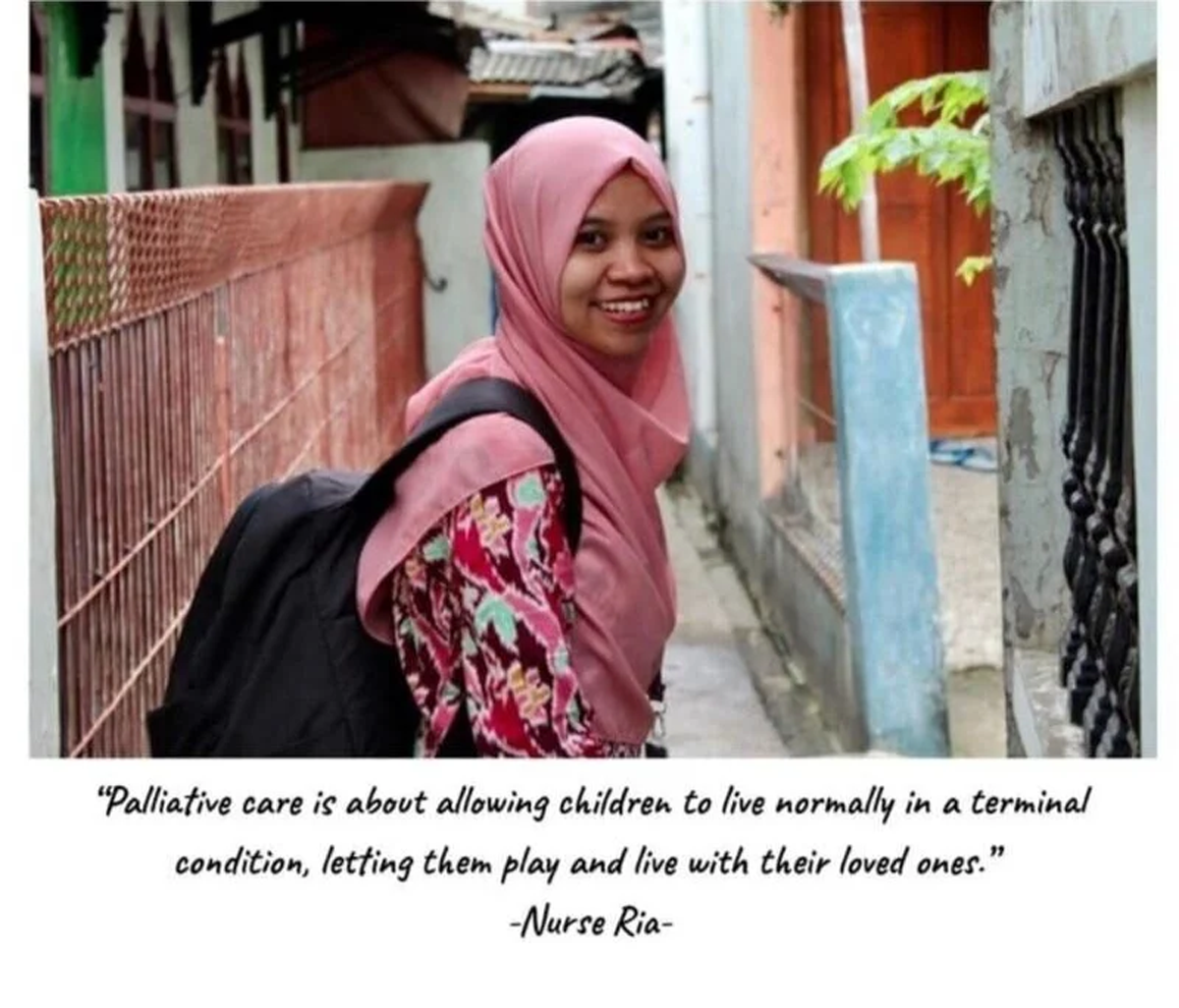
In 2016 Lynna stepped down after 10 years at the helm of Rachel House as she planned. But due to Covid-19 pandemic, she has again taken over the reigns. Her short break from the day-to-day operations did not stop her from learning, and focusing on the bigger picture and vision.
“I have been blessed to have been graced by many giants in my life as I make my way towards returning humanity to medicine.” Lynna explains that during her time away from Rachel House she met with like-minded individuals.
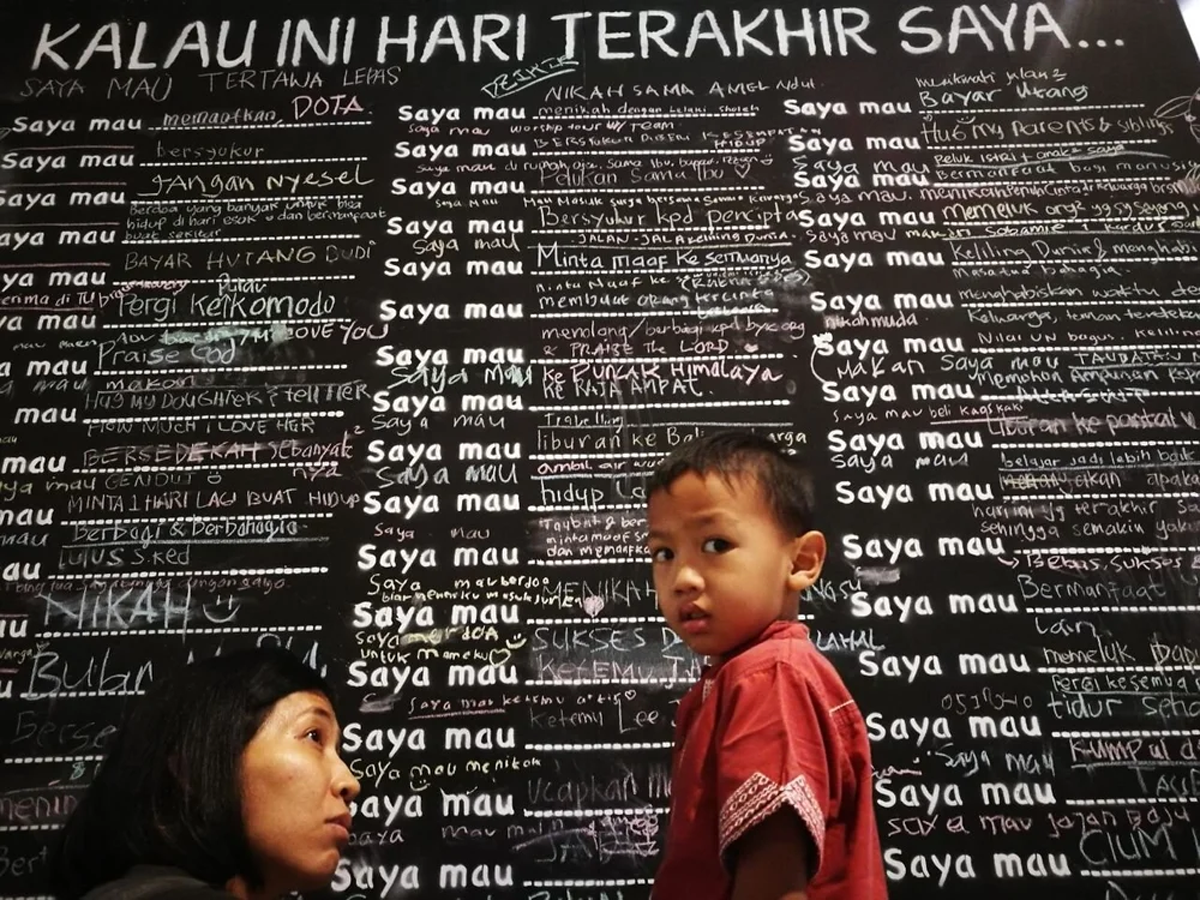
Dr Albert Mulley, professor of medicine at the Dartmouth Institute for Health Policy and Clinical Practice and Geisel School of Medicine at Dartmouth, has been one of those inspirations for Lynna. Her understanding and insights expanded.
“My clinical duties spanned from primary care to intensive care while my teaching and research focused on how doctors and patients could work together to make good choices. Did patients understand the risks, as well as the benefits, of treatment? Did clinicians know what mattered most to patients? When doctors asked patients to adopt healthier behaviours, did they take the time to understand the obstacles that constrained the choices those patients could make?”
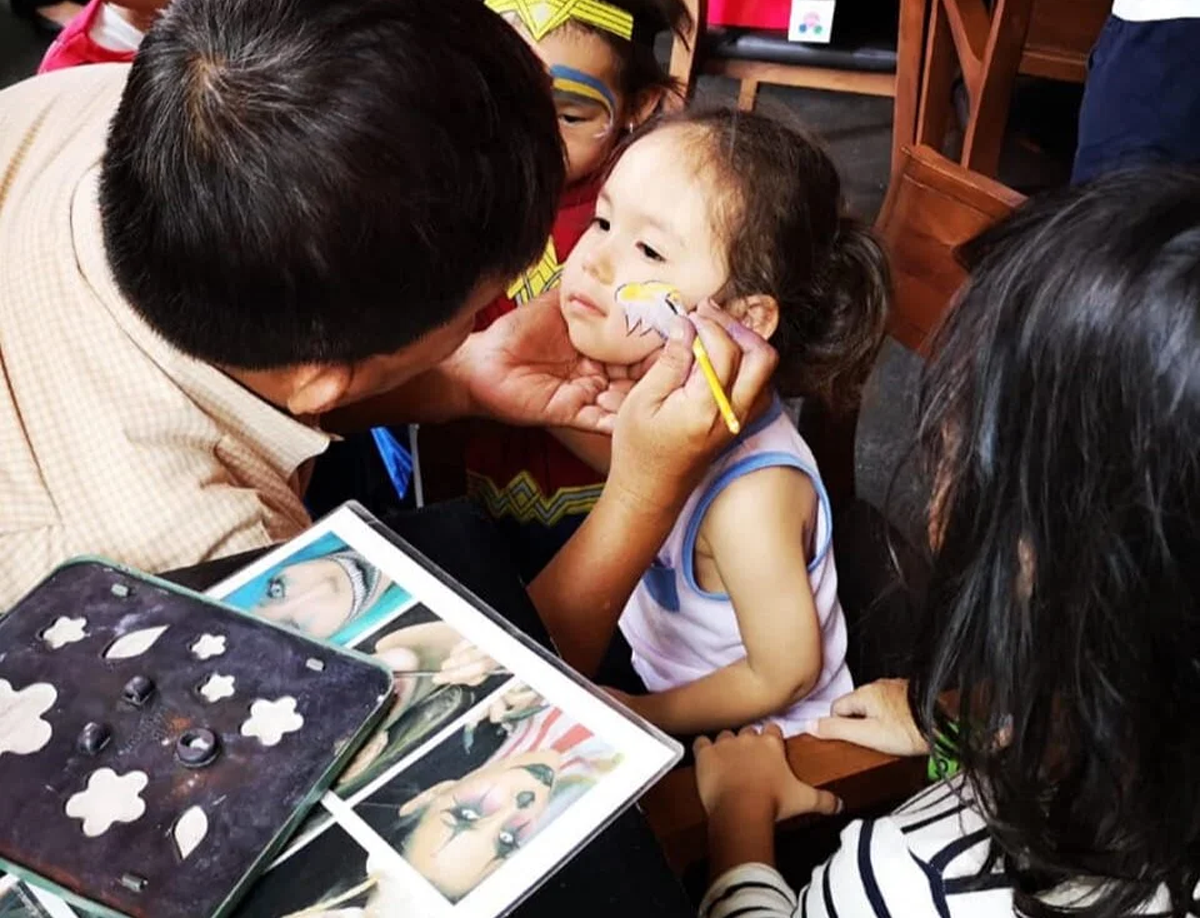
Another inspiring person, Dr James Doty, founder of CCARE at Stanford Medicine and author of “Into the Magic Shop”, filled Lynna with great hopes after she learned more about bringing compassion to the field of medicine.
Lynna’s numerous discussions with Dr Victor Montori, an endocrinologist at Mayo Clinic and author of “Why We Revolt”, were centred on re-imagining a care system different from the “industrialised” system that we have today which seems to have robbed hearts from its core tenet.
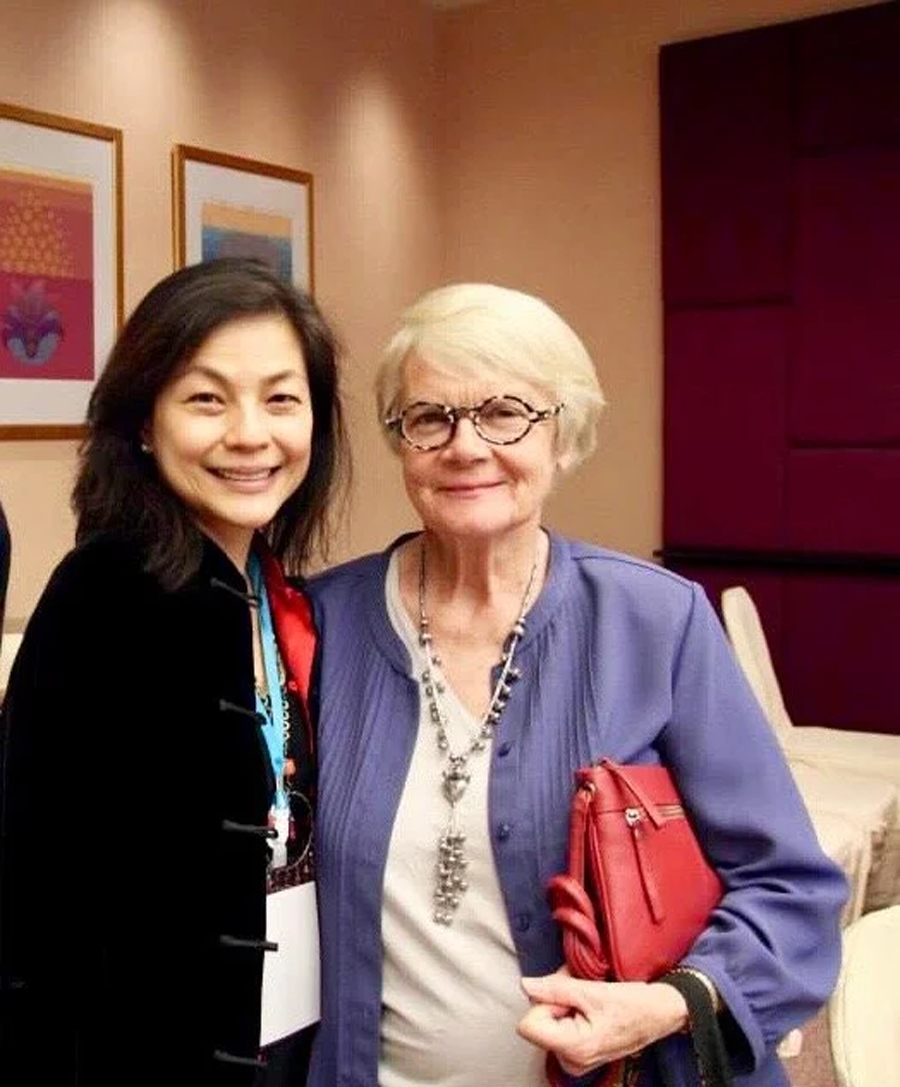
Closer to home, doctors like Prof Quah Thuan Chong and Dr Rosalie Shaw taught Lynna “that a great doctor begins simply with being a great friend, a wonderful human being.”
Dr Shaw’s insights: “Symptom management is ‘doing’— it is what we do (as doctors). Communication is ‘being’ — it is how we bear witness to suffering.”
As Ram Das said, “We are just walking each other home”. A great doctor is someone who walks by your side during a terrifying time of your journey on earth, holding you through this period.
At the end of our engaging encounter, I felt more at peace and discovered new- found optimism. If we all had a Lynna to care and watch over us in difficult times, surely we could only make this world a better place for all.
Karmela | ws
Images: Rachel House | More information on palliative care service Rachel House
Lynna’s book recommendations:
On Mindfulness & Leadership
- The Mind of the Leader by Rasmus Hougaard & Jacqueline Carte
- Contemplative Leaders – Personal Reflections by Members of the Bonnevaux Business Meditation Group (A Meditation Publication)
On Compassion in Medicine
- The Lost Art of Healing – Practicing Compassion in Medicine by Bernard Lown
- Kitchen Table Wisdom by Rachel Naomi Remen, M.D.
- Dear Life by Rachel Clarke

